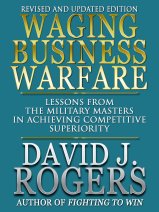Examples of a Writer’s and an Artist’s Adversity:
A Painter
You’re in the arts–you’re imaginative–so imagine that you are like an artist friend of mine named Ariel and you have worked very hard and  have finished a painting that in your judgment is excellent in every respect. Like Ariel you are trained and educated in your craft and recognize your paintings’ consistently high quality and dazzling originality. You know you can’t do better. You feel that no one but you could have executed this project. It required blending many abilities not every painter possesses. You see in your painting, as Ariel saw in hers, something especially flamboyant and fetching. Your hopes for its artistic and financial success are high.
have finished a painting that in your judgment is excellent in every respect. Like Ariel you are trained and educated in your craft and recognize your paintings’ consistently high quality and dazzling originality. You know you can’t do better. You feel that no one but you could have executed this project. It required blending many abilities not every painter possesses. You see in your painting, as Ariel saw in hers, something especially flamboyant and fetching. Your hopes for its artistic and financial success are high.
But in the marketplace the work is ignored without a word. Paintings that you know are lower quality are praised and sold for impressive prices. Your work is considered a failure, your reputation tarnished. You are as discouraged as deeply as you have ever been, heart-broken, feeling cursed, dejected, doubting that the experience of being content–that glow of the heart–that conviction of strength you remember–will ever come back again. You lose your appetite for the artist’s life. You have had enough and like Ariel you give up.
Were you to enter Ariel’s apartment and walk down the hall you would find that painting on an easel in an unused bedroom close to the kitchen.
An Author
Now imagine that you are an author with a new contract with a big advance and the publisher–highly regarded in publishing–is ecstatic about  your book. She recognizes its significant sales potential. She calls you In Chicago from New York and says that your book is one of the two or three best books of any type she has ever read. She is entranced with the book and pledges to you to commit to “putting it over” whatever resources are necessary to make it the country’s top best seller (The book is topical and has that kind of potential.) You call your agent and ask him about the publisher reputation and he tells you that they are known for selecting one of their titles each year and making it the kind of best seller the publisher described.
your book. She recognizes its significant sales potential. She calls you In Chicago from New York and says that your book is one of the two or three best books of any type she has ever read. She is entranced with the book and pledges to you to commit to “putting it over” whatever resources are necessary to make it the country’s top best seller (The book is topical and has that kind of potential.) You call your agent and ask him about the publisher reputation and he tells you that they are known for selecting one of their titles each year and making it the kind of best seller the publisher described.
Meetings are held, marketing plans laid, enthusiasm grows. But then like a curse you only read about, the very day–the very hour–you are scheduled to begin a long multi-city cross-country promotional tour to kick off the marketing campaign, you are called and told that the publishing house has been sold to a foreign-owned publisher who is not enthusiastic about your book and the marketing money and plan are abandoned. The cab to take you to the airport is outside waiting and you go out and cancel it.
All the plans are canceled and the dreams of being famous and rich are canceled too. You think, “It is no one’s fault. It could have happened to anyone.” But how dreary it is to fall unprepared from the heights of elation to the depths of sullen moods. (What you just read is not a case study I made up: it happened to me.)
Develop the Ability to “Spring Back”
During a career writers and artists who often are particularly sensitive people may encounter many adversities and hurtful failures. Being  resilient means first of all accepting such adversities and those you have experienced yourself as an unavoidable part of the writer’s and artist’s life. That insight deeply-felt and never forgotten is essential for maintaining a firm, unshakeable spirit.
resilient means first of all accepting such adversities and those you have experienced yourself as an unavoidable part of the writer’s and artist’s life. That insight deeply-felt and never forgotten is essential for maintaining a firm, unshakeable spirit.
The word “resilient” means “to spring back,” the way Ernest Hemingway was forced to spring back when his wife lost the only drafts of all his short stories on a train and he had to begin writing them all over again. A painter needs to “spring back” when a prospect turns down a high-priced painting they had expressed a very strong interest in, but inexplicably changed their mind.
If you are a writer or artist–actor, composer, ballet dancer, musician, etc.– you have the advantage of a much larger tolerance for suffering than the majority of people. Make use of that advantage. Hardships, though they are difficult to bear and may create many stresses, strengthen the development of resilience. Helen Keller was a disabilities rights activist, author, and lecturer who lived her life in total blindness. She said “character cannot be developed in ease and quiet. Only through experiences of trial and suffering can the soul be strengthened, ambition inspired, and success achieved.”
The lives of people in the arts aren’t easy. For example, their lives confront them with many competitions when they must prove their worth: will my manuscript have a chance among the thousands of others submitted to that publisher? Will my lithographs make an impression at the show? And when there are competitions the majority are going to fail. If you fail, will you make a comeback? Not everyone makes a comeback.
Metaphorically Be a Body-Builder
A body-builder’s goal is to build muscle. When heavy weights are being lifted, the fibers in the muscles are broken down. Then during the  period the body-builder rests, those muscles are rebuilt, but bigger and stronger than they had been. Don’t be so afraid of hardships, stresses, difficulties, and crises. They strengthen you emotionally, spiritually, and mentally.
period the body-builder rests, those muscles are rebuilt, but bigger and stronger than they had been. Don’t be so afraid of hardships, stresses, difficulties, and crises. They strengthen you emotionally, spiritually, and mentally.
A knowledge of yourself and willingness to experiment with life changes and new directions will enhance your resilience. Some writers and artists are innately resilient and psychologically strong; others are not. But less-resilient writers and artists can learn to be stronger and more resilient. Begin by being self-encouraging. Tell yourself, “Don’t weaken. Be strong. This all will pass.”
Poet John Berryman thought ordeals are very positive things. He said, “I do strongly feel that among the great pieces of luck for high achievement is ordeal. Certain great artists can make out without it…but mostly you need ordeal…Beethoven’s deafness, Goya’s deafness, Milton’s blindness, that kind of thing.” Harsh difficulties enhance your ability to thrive under stress. They can improve your performance, stamina, and mental health.
Adversities can be positive, leading to the discovery of unknown strengths. Crises can change a novelist or water- colorist for the better. Hope and optimism strengthen you. Deeply-held spiritual beliefs strengthen you. Making tough decisions under pressure also makes you stronger.
Another Painter and Three More Authors Who Failed But Did Not Give Up
Creative people are susceptible to trials and suffering. One especially trying period is getting recognized at the beginning of your career. William Saroyan received not just fifty or a few hundred rejection slips before his first story was published, but several thousand. But he continued  working, as confident as van Gogh and became one of the most popular American writers of his era. Ernest Hemingway said that at the beginning of his career every day “the rejected manuscripts would come through the slot in the door…I’d sit at that old wooden table and read one of those cold slips that had been attached to a story I had loved and worked on very hard and believed in, and I couldn’t help crying.” But he had faith that eventually his work would be in demand and never stopped working. The crowning achievement was the Nobel Prize in Literature.
working, as confident as van Gogh and became one of the most popular American writers of his era. Ernest Hemingway said that at the beginning of his career every day “the rejected manuscripts would come through the slot in the door…I’d sit at that old wooden table and read one of those cold slips that had been attached to a story I had loved and worked on very hard and believed in, and I couldn’t help crying.” But he had faith that eventually his work would be in demand and never stopped working. The crowning achievement was the Nobel Prize in Literature.
 Vincent van Gogh spent a short, intense five-year career producing an astonishing three thousand masterpieces that are now auctioned for many millions of dollars, but in his lifetime sold only one painting, and that was for a few brushes and paints. But he continued working confidently and never doubted that in the future his talents would be recognized
Vincent van Gogh spent a short, intense five-year career producing an astonishing three thousand masterpieces that are now auctioned for many millions of dollars, but in his lifetime sold only one painting, and that was for a few brushes and paints. But he continued working confidently and never doubted that in the future his talents would be recognized
The persistent hard work of an ever-confident van Gogh, a Saroyan, and a Hemingway and other writers and artists like them–the refusal to accept defeat–is an antidote to failures in the arts.
American Henry Miller lived the life of a homeless beggar on the streets of Paris while trying to learn to write professionally, artfully. He was penniless and had no permanent address, no possessions but a comb and hair brush, no successes, and no prospects. Yet he was optimistic. He said, “I have no money, no resources, and no hope. I am the happiest man alive.” He lived that way into his late forties before his genius was recognized and he took the literary world by storm, writing a new kind of fiction. He was tough and street-smart. Being abused by an editor he snarled, “Who are these shits? Where do they get off saying such things to me?”
Acquiring Needed Insights and Strategies
In spite of inequities among writers and artists (“Why is she so successful when I am not?”) and the emotions discouragement causes–the anger, the bitterness, the scourge of self-doubt and shattered confidence, the devastation of failure, the sense of inadequacy–some people in the arts such as van Gogh, Saroyan, Hemingway, and Miller take a deep breath, regain their composure, and imperturbable, resume their heroic efforts, trying again, following the philosophy of resilience, of being knocked down seven times but getting up eight. However, some other writers and artists who are just as intelligent, just as gifted, just as aspiring, but not as resilient are tormented and creatively disabled. They may never recover unless they acquire new insights and corrective strategies of the type I’m discussing.
The More Persistent You Are the Better Off You Will Be
 In every era, in creative after creative, three empowering qualities like three ingredients of a potent formula have proven to help writers and artists not to give up when they fail. Those qualities are being resilient, being persistent, and having faith in yourself. Resilient, persistent writers and artists with strong faith in themselves never give up.
In every era, in creative after creative, three empowering qualities like three ingredients of a potent formula have proven to help writers and artists not to give up when they fail. Those qualities are being resilient, being persistent, and having faith in yourself. Resilient, persistent writers and artists with strong faith in themselves never give up.
Without a deep, enduring, never-defeated faith in yourself you may give up at the very moment you should brace yourself, focus more clearly, and work harder. Often unsuccessful people are those who have fallen just a little short of their goals because they failed to persist for three months longer, or two, or even a week. They lost faith in themselves when they met adversity and didn’t realize how close they were to success, acclaim, and satisfaction. Have you ever given up too soon? What if you hadn’t?
 Faith in yourself touches every facet of your being–whether you think about your prospects positively or in a self-defeating way, how strongly you motivate yourself, your susceptibility to self-doubt and discouragement, and the positive changes you will be able to make in your life.
Faith in yourself touches every facet of your being–whether you think about your prospects positively or in a self-defeating way, how strongly you motivate yourself, your susceptibility to self-doubt and discouragement, and the positive changes you will be able to make in your life.
You must always strive to overcome the paralyzing sense that your efforts are futile. You must have enduring faith in yourself and not permit anything to interfere with it. Having faith in yourself, being resilient, and being persistent are cornerstones of success and fulfillment whatever your art.
Make the word “Persist” your motto, your rallying word. Whenever you are thinking of giving up your work, your career, say the word “Persist.” Whenever you think “It’s just too much for me. I can’t continue,” say “Persist.” Say “Persist” if your submitted work is rejected. “Persist, don’t give up. Try again.” And when you are losing heart, losing confidence say, “I have faith in myself.” Persist and have faith in yourself. “I will persist and finish my novel, and it will be the best I can do.” Then you will be strong.
Many psychologists believe that whatever the field or the activity the most intelligent person–the person with the highest I. Q.–will be the most  successful. Catherine Cox studied greatness and disagreed. She found that persistence is a key. Persistence is so important in almost every endeavor that it compensates for lesser intelligence. Cox concluded: “High but not the highest intelligence, combined with the greatest degree of persistence will achieve greater eminence than the highest degree of intelligence with somewhat less persistence. “
successful. Catherine Cox studied greatness and disagreed. She found that persistence is a key. Persistence is so important in almost every endeavor that it compensates for lesser intelligence. Cox concluded: “High but not the highest intelligence, combined with the greatest degree of persistence will achieve greater eminence than the highest degree of intelligence with somewhat less persistence. “
Many writers, artists, composers, musicians, actors, ballet dancers, and other creatives have learned that their persistence has been more important than talent.
If you want a successful future in the arts, you will never think of yourself as a failure or give up if you don’t succeed. You will be level-headed and do your best to respond calmly with composure and confidence to setbacks, difficult periods, insults, abuses, deprivation and failures–bravely, with hope, courage, and positive thinking. In the most despairing moments of your career you will think, “It’s bad, but my goodness, it’s not that bad. I’m not dead and I’m still very talented.”
© 2022 David J. Rogers
For my interview from the international teleconference with Ben Dean about Fighting to Win, click the following link:
Order Fighting to Win: Samurai Techniques for Your Work and Life eBook by David J. Rogers
or
Order Waging Business Warfare: Lessons From the Military Masters in Achieving Competitive Superiority
or


 had, but doesn’t. It is a highly-regarded journal and would enhance any serious writer’s reputation to appear in it. That journal had published other pieces of Kathy’s in the past during her particularly prolific period when work poured out of her and was in demand by editors and readers. Some of her books were being published at the time, and many of her articles appearing in magazines were achieving record readership scores.
had, but doesn’t. It is a highly-regarded journal and would enhance any serious writer’s reputation to appear in it. That journal had published other pieces of Kathy’s in the past during her particularly prolific period when work poured out of her and was in demand by editors and readers. Some of her books were being published at the time, and many of her articles appearing in magazines were achieving record readership scores. I am talking about the difference between writers whose overriding goal is to see their work in print–a Publication Focus–contrasted with writers whose overriding goal stops short of publication in which they are not interested. They are concerned solely with generating what is in their judgment the highest possible quality text–a Production Focus. The latter are more than contented to produce works they are proud of without seeing them published.
I am talking about the difference between writers whose overriding goal is to see their work in print–a Publication Focus–contrasted with writers whose overriding goal stops short of publication in which they are not interested. They are concerned solely with generating what is in their judgment the highest possible quality text–a Production Focus. The latter are more than contented to produce works they are proud of without seeing them published. matters to them is that the works they produce be the best they have the skills to produce. They believe that because they are not interested in publishing but in producing the highest quality work they can, they are more creative and do better work than they would were they competing with others to see their work in print, and there are grounds for that belief.
matters to them is that the works they produce be the best they have the skills to produce. They believe that because they are not interested in publishing but in producing the highest quality work they can, they are more creative and do better work than they would were they competing with others to see their work in print, and there are grounds for that belief. produced was then graded by professionals–seasoned painters grading the paintings, experienced writers the writing, etc. The results were significant in that no matter what the reward was or when it was given, if the subjects thought they were working for external rewards, even a little trinket, and not for fun and pleasure, they became less creative. But when they were light-hearted and fooling around and no external reward was involved, they were more creative and their work was better.
produced was then graded by professionals–seasoned painters grading the paintings, experienced writers the writing, etc. The results were significant in that no matter what the reward was or when it was given, if the subjects thought they were working for external rewards, even a little trinket, and not for fun and pleasure, they became less creative. But when they were light-hearted and fooling around and no external reward was involved, they were more creative and their work was better. a clear, informative, and entertaining way concepts that were unfamiliar to western thinking. It was a challenge because the concept of the book was totally new and original. Every day’s work of many hours was fulfilling, I didn’t spend a second thinking about how my book would do in the stores, only about the book’s clarity and how useful I could make it and how inviting it would be for readers. It was a highly successful and profitable book and my ambitions for the next book I began were high. But I found my thoughts losing focus. They often wandered away from the book’s content and style and how to satisfy the reader to where I would build the new house the new book’s royalties would bring me and the kind of cars I would buy. Both books received many accolades and made best seller lists. But whereas I wouldn’t change a single word of the first book, I live with the knowledge that the second book could have been better.
a clear, informative, and entertaining way concepts that were unfamiliar to western thinking. It was a challenge because the concept of the book was totally new and original. Every day’s work of many hours was fulfilling, I didn’t spend a second thinking about how my book would do in the stores, only about the book’s clarity and how useful I could make it and how inviting it would be for readers. It was a highly successful and profitable book and my ambitions for the next book I began were high. But I found my thoughts losing focus. They often wandered away from the book’s content and style and how to satisfy the reader to where I would build the new house the new book’s royalties would bring me and the kind of cars I would buy. Both books received many accolades and made best seller lists. But whereas I wouldn’t change a single word of the first book, I live with the knowledge that the second book could have been better. “One day I seemed to shut a door between me and all publishers. I said to myself, ‘Now I can write.” He started working on The Sound and the Fury, “thinking of books, publication, only in the sense in saying to myself, I wont (sic) have to worry about publishers liking or not liking this at all.”
“One day I seemed to shut a door between me and all publishers. I said to myself, ‘Now I can write.” He started working on The Sound and the Fury, “thinking of books, publication, only in the sense in saying to myself, I wont (sic) have to worry about publishers liking or not liking this at all.” writing every day. Most of them quit because of the heavy, depressing weight of too many failures and too few–if any–successes and the toll of failures on one’s
writing every day. Most of them quit because of the heavy, depressing weight of too many failures and too few–if any–successes and the toll of failures on one’s  bored. Just as children do that, writers can do something remarkable. As fully absorbed as children, they can work on perfecting a single paragraph forty or fifty times without experiencing a moment of boredom while people who are not writers and think that one draft is sufficient are astonished that such a feat is possible. The conclusion of Amabile’s experiments was that a playful approach like that of children increases the likelihood of producing creative results, and that pursuing external rewards diminishes the person’s creativity.
bored. Just as children do that, writers can do something remarkable. As fully absorbed as children, they can work on perfecting a single paragraph forty or fifty times without experiencing a moment of boredom while people who are not writers and think that one draft is sufficient are astonished that such a feat is possible. The conclusion of Amabile’s experiments was that a playful approach like that of children increases the likelihood of producing creative results, and that pursuing external rewards diminishes the person’s creativity. themselves) which Production Writers experience has been shown to improve the quality of the work that is produced. That is why so many famous writers think that they, and no one else, are the best judge of their work and why so many of them ignore or don’t ask for the advice of editors. Who enjoys being evaluated? Writers often dread evaluations, and evaluations negatively affect the writer’s mood and thus the quality of work that is produced. A Production Writer may ask for editorial assistance–to be helped–but not to be evaluated.
themselves) which Production Writers experience has been shown to improve the quality of the work that is produced. That is why so many famous writers think that they, and no one else, are the best judge of their work and why so many of them ignore or don’t ask for the advice of editors. Who enjoys being evaluated? Writers often dread evaluations, and evaluations negatively affect the writer’s mood and thus the quality of work that is produced. A Production Writer may ask for editorial assistance–to be helped–but not to be evaluated. ball passing back and forth between you and life. No one ever holds the advantage all the time. The advantage can swing to you or away from you at any time. Sometimes you hold the advantage, and an ideal life and great achievements in your career or personal life seem so near you can touch them with your fingers. Then you suffer a setback, a crisis, or a major problem, and you’re driven down into the dark depths of discouragement. You have lost the advantage, and your need now is to get it back.
ball passing back and forth between you and life. No one ever holds the advantage all the time. The advantage can swing to you or away from you at any time. Sometimes you hold the advantage, and an ideal life and great achievements in your career or personal life seem so near you can touch them with your fingers. Then you suffer a setback, a crisis, or a major problem, and you’re driven down into the dark depths of discouragement. You have lost the advantage, and your need now is to get it back. “The Swing of the Advantage” is a concept from my print best seller Fighting to Win: Samurai Techniques for Your Work and Life (now available as an eBook). From the twelfth through the nineteenth centuries Japanese samurai (bushi) were fighting men and women in service of a lord, a “daimyo.” They were the greatest warriors who ever lived, and based their expertise on physical, psychological, and Zen spiritual insights and techniques that they acquired through as demanding training as there has ever been in any discipline. Their skills were legendary. Fighting To Win prescribes their
“The Swing of the Advantage” is a concept from my print best seller Fighting to Win: Samurai Techniques for Your Work and Life (now available as an eBook). From the twelfth through the nineteenth centuries Japanese samurai (bushi) were fighting men and women in service of a lord, a “daimyo.” They were the greatest warriors who ever lived, and based their expertise on physical, psychological, and Zen spiritual insights and techniques that they acquired through as demanding training as there has ever been in any discipline. Their skills were legendary. Fighting To Win prescribes their  dragon’s mask.”
dragon’s mask.”
 Is there any area in your personal or professional life right now in which the advantage has swung away from you? What will you do to get the advantage back? Whatever it is, don’t delay. Run straight toward it zan totsu–
Is there any area in your personal or professional life right now in which the advantage has swung away from you? What will you do to get the advantage back? Whatever it is, don’t delay. Run straight toward it zan totsu– Andrea, a friend—“Andy”–seemed to reach her peak when she had two short stories published in prestigious literary journals at twenty-four and a novel that sold moderately well at twenty-eight. She didn’t think then it would be her peak, but assumed it was a preview of other successes soon to come. But they haven’t come and she’s been wondering what’s wrong with her.
Andrea, a friend—“Andy”–seemed to reach her peak when she had two short stories published in prestigious literary journals at twenty-four and a novel that sold moderately well at twenty-eight. She didn’t think then it would be her peak, but assumed it was a preview of other successes soon to come. But they haven’t come and she’s been wondering what’s wrong with her. path to solving the problem by admitting she’s found herself on a performance plateau—in a performance rut.
path to solving the problem by admitting she’s found herself on a performance plateau—in a performance rut. decides they are different. The earlier work was simpler and more heart-felt and sincere. She realizes that she has fallen into a trap of “showing off”–of trying to impress readers with what a good writer she is and how brilliant she is rather than in telling a story in a simple, direct, “Here’s my work, take it or leave it” style.
decides they are different. The earlier work was simpler and more heart-felt and sincere. She realizes that she has fallen into a trap of “showing off”–of trying to impress readers with what a good writer she is and how brilliant she is rather than in telling a story in a simple, direct, “Here’s my work, take it or leave it” style. She also plans to read biographies and autobiographies of writers living and dead who will inspire her.
She also plans to read biographies and autobiographies of writers living and dead who will inspire her.
 Why what I’m going to say now is true, no one has been able to figure out, but almost all people relax their efforts when they get close to achieving even their most important goals. They struggle and struggle and then seem to get lazy and disinterested. They are like a sprinter who runs fast to the tape and slows down or stops. But good coaches advise runners to “run through the tape.” Whatever you do, don’t relax just when you’re getting close to success, but persist in applying your utmost energy
Why what I’m going to say now is true, no one has been able to figure out, but almost all people relax their efforts when they get close to achieving even their most important goals. They struggle and struggle and then seem to get lazy and disinterested. They are like a sprinter who runs fast to the tape and slows down or stops. But good coaches advise runners to “run through the tape.” Whatever you do, don’t relax just when you’re getting close to success, but persist in applying your utmost energy Why are you and I so afraid of failure? Many people live in terror of it and feel they must never fail, but always succeed, trailing clouds of glory. Yet failure can be a blessed life-changing event. If you experience only successes, you come to expect quick and easy results, and your sense of confidence is easily undermined if you suffer a setback. Setbacks and failures serve two useful purposes: Not only do they show us that we need to make changes and adjustments in order to gain the success we are seeking, but also they teach us that success usually requires confident, persistent, skilled, focused effort sustained over time. Once you set failures aside and become convinced that you have what it takes to succeed, you quickly rebound from failures. By having courage and sticking it out through tough times, you come out on the far side of failures with even greater confidence and commitment.
Why are you and I so afraid of failure? Many people live in terror of it and feel they must never fail, but always succeed, trailing clouds of glory. Yet failure can be a blessed life-changing event. If you experience only successes, you come to expect quick and easy results, and your sense of confidence is easily undermined if you suffer a setback. Setbacks and failures serve two useful purposes: Not only do they show us that we need to make changes and adjustments in order to gain the success we are seeking, but also they teach us that success usually requires confident, persistent, skilled, focused effort sustained over time. Once you set failures aside and become convinced that you have what it takes to succeed, you quickly rebound from failures. By having courage and sticking it out through tough times, you come out on the far side of failures with even greater confidence and commitment. The effect of
The effect of  Confidence is needed if you are to be successful as an artist. Make it a point to never lose confidence. If you find yourself losing it, use affirming statements, such as “I can do this; I believe in myself.’
Confidence is needed if you are to be successful as an artist. Make it a point to never lose confidence. If you find yourself losing it, use affirming statements, such as “I can do this; I believe in myself.’ The most successful people have high career aspirations, are confident, and generally attribute their success to high effort and failure to lack of effort.
The most successful people have high career aspirations, are confident, and generally attribute their success to high effort and failure to lack of effort. Creative people who are the most likely to ask for help are those with a high opinion of themselves, while those with a low opinion of themselves are the least likely, although they may be the most in need of it and would profit from it. Asking for help shows that you’re serious about reaching your goals. Useful feedback can help you evolve and reach high levels of satisfaction and achievement.
Creative people who are the most likely to ask for help are those with a high opinion of themselves, while those with a low opinion of themselves are the least likely, although they may be the most in need of it and would profit from it. Asking for help shows that you’re serious about reaching your goals. Useful feedback can help you evolve and reach high levels of satisfaction and achievement.
































